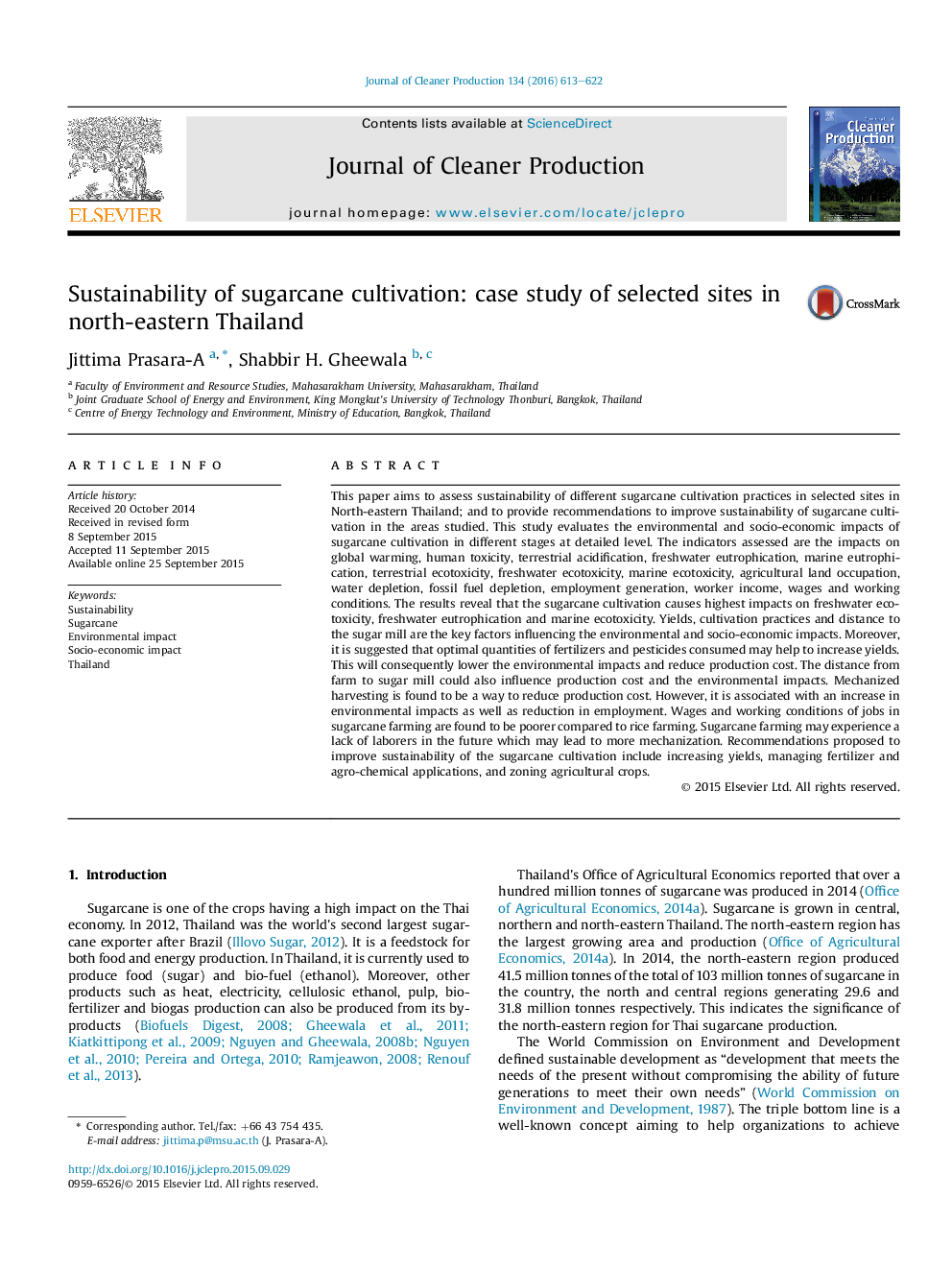| Article ID | Journal | Published Year | Pages | File Type |
|---|---|---|---|---|
| 1744025 | Journal of Cleaner Production | 2016 | 10 Pages |
•Sustainability of different sugarcane cultivation practices was assessed.•Yields, cultivation practices and transportation influence sustainability performance.•Sugarcane farming may face lack of laborers and be more mechanized in the future.•Optimal fertilization and weeding, and zoning agricultural crops are recommended.
This paper aims to assess sustainability of different sugarcane cultivation practices in selected sites in North-eastern Thailand; and to provide recommendations to improve sustainability of sugarcane cultivation in the areas studied. This study evaluates the environmental and socio-economic impacts of sugarcane cultivation in different stages at detailed level. The indicators assessed are the impacts on global warming, human toxicity, terrestrial acidification, freshwater eutrophication, marine eutrophication, terrestrial ecotoxicity, freshwater ecotoxicity, marine ecotoxicity, agricultural land occupation, water depletion, fossil fuel depletion, employment generation, worker income, wages and working conditions. The results reveal that the sugarcane cultivation causes highest impacts on freshwater ecotoxicity, freshwater eutrophication and marine ecotoxicity. Yields, cultivation practices and distance to the sugar mill are the key factors influencing the environmental and socio-economic impacts. Moreover, it is suggested that optimal quantities of fertilizers and pesticides consumed may help to increase yields. This will consequently lower the environmental impacts and reduce production cost. The distance from farm to sugar mill could also influence production cost and the environmental impacts. Mechanized harvesting is found to be a way to reduce production cost. However, it is associated with an increase in environmental impacts as well as reduction in employment. Wages and working conditions of jobs in sugarcane farming are found to be poorer compared to rice farming. Sugarcane farming may experience a lack of laborers in the future which may lead to more mechanization. Recommendations proposed to improve sustainability of the sugarcane cultivation include increasing yields, managing fertilizer and agro-chemical applications, and zoning agricultural crops.
